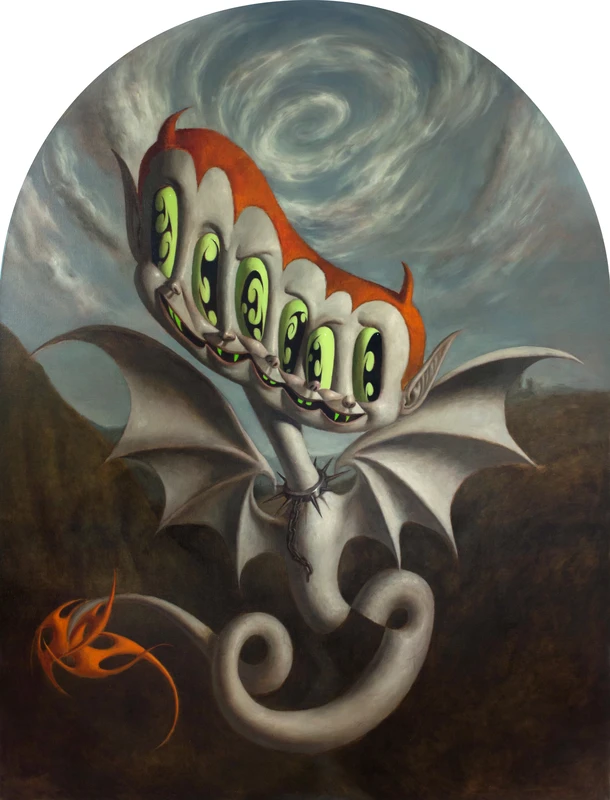Karms Thammatat: Utopia Now
11 Apr-13 May 2023


Inspired by Sir Thomas More’s 1516 account of a fictional island society and its religious, social and political customs, Thammatat interprets this narrative through oil painting. The artist examines how our global society is micromanaged; thought, values, religion, education, law, nature and politics are controlled by external powers that limit individual freedom and expression. With Utopia Now, Thammatat queries the reasons behind society’s rules, questioning who created them and why. In doing so, the artist ponders whether there is an ideal world that lives beneath the restrictions and turmoil of our everyday lives.
Thammatat employs a cast of cartoon-like characters to inhabit the strange and unfamiliar environments of his canvases. He began conceiving these characters at university, after becoming inspired by the techniques used by Old Master painters to create light and shadow. Thammatat uses these techniques to convey atmosphere, communicating moods of uncertainty and disquiet through classically inspired chiaroscuro. He always begins by sketching, a process that is purely intuitive, allowing these characters to arise from a place in his subconscious. After this process, he analyses his composition, connecting his characters to specific locations. These cartoonish figures, recognisable from their enlarged eyes and manic smiles, dwell in uncanny environments. Sometimes they appear in expanses of nature or they sit in vaguely domestic settings. Often, they are chained down in some way, perhaps indicative of the limits of society’s rules and regulations.
As an artist, Thammatat views his position in society as one of ambiguity and liminality. He inhabits a space between observer and creator. Often the environments that Thammatat studies and subsequently visualises are characterised by chaos. As such, he questions whether he is simply a witness to this chaos or an agent of it. Ultimately, Thammatat sees himself as a communicator, understanding how elements of contemporary society are rooted in history and considering how the tumult of modern times is not specific to our moment. Chaos has defined every era of history. However, throughout this history of turmoil, ideas of utopia have never ceased to exist even if they have never been realised. As such, Utopia Now encourages viewers to reflect, interpret and dismantle the systems of ideas on which society has been built, urging us to question the power structures that surround and control us.